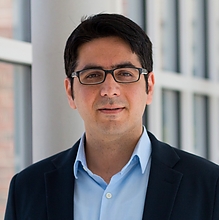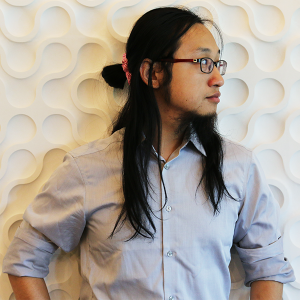 Asia Biega is a tenure-track faculty member (W2) at the Max Planck Institute for Security and Privacy (MPI-SP) leading the Responsible Computing group. Through interdisciplinary collaborations, she designs legally, ethically, and socially responsible information and social computing systems and studies how they interact with and influence their users. She has published her work in leading information retrieval, Web, and data mining venues, and has been serving on the program committees of conferences such as SIGIR, WSDM, KDD, AAAI, and FAT*/FAccT. She has co-organized the NIST TREC Fair Ranking track, and a FAT* panel on technology refusal. Beyond academia, her perspectives and methodological approaches are informed by an industrial experience, including work on privacy infrastructure at Google and consulting for Microsoft product teams on issues related to FATE and privacy. Asia completed her PhD at the Max Planck Institute for Informatics and the Max Planck Institute for Software Systems.
Asia Biega is a tenure-track faculty member (W2) at the Max Planck Institute for Security and Privacy (MPI-SP) leading the Responsible Computing group. Through interdisciplinary collaborations, she designs legally, ethically, and socially responsible information and social computing systems and studies how they interact with and influence their users. She has published her work in leading information retrieval, Web, and data mining venues, and has been serving on the program committees of conferences such as SIGIR, WSDM, KDD, AAAI, and FAT*/FAccT. She has co-organized the NIST TREC Fair Ranking track, and a FAT* panel on technology refusal. Beyond academia, her perspectives and methodological approaches are informed by an industrial experience, including work on privacy infrastructure at Google and consulting for Microsoft product teams on issues related to FATE and privacy. Asia completed her PhD at the Max Planck Institute for Informatics and the Max Planck Institute for Software Systems.
 Soheil Feizi is an assistant professor in Computer Science department at University of Maryland, College Park (UMD). His research focuses on understanding various theoretical and practical aspects of machine learning and statistical inference problems. In particular, Feizi strives to understand the robustness of modern learning methods with respect to the learning architecture, model complexity, sample complexity, and noise (either random or adversarial). He received NSF CAREER Award in 2020. Before joining UMD, he was a post-doctoral researcher at Stanford University . He received my Ph.D. and M.Sc. in Electrical Engineering and Computer Science, with a minor degree in Mathematics, at MIT.
Soheil Feizi is an assistant professor in Computer Science department at University of Maryland, College Park (UMD). His research focuses on understanding various theoretical and practical aspects of machine learning and statistical inference problems. In particular, Feizi strives to understand the robustness of modern learning methods with respect to the learning architecture, model complexity, sample complexity, and noise (either random or adversarial). He received NSF CAREER Award in 2020. Before joining UMD, he was a post-doctoral researcher at Stanford University . He received my Ph.D. and M.Sc. in Electrical Engineering and Computer Science, with a minor degree in Mathematics, at MIT.
 Joe Halpern is a professor at Cornell University. His major research interests are in reasoning about knowledge and uncertainty, security, distributed computation, decision theory, and game theory. He has coauthored six patents, two books (“Reasoning About Knowledge” and “Reasoning about Uncertainty”), and over 300 technical publications. Halpern is a Fellow of AAAI, AAAS, ACM, IEEE, and SEAT (Society for the Advancement of Economic Theory). Among other awards, he received the ACM SIGART Autonomous Agents Research Award in 2011, the Dijkstra Prize in 2009, the ACM/AAAI Newell Award in 2008, the Godel Prize in 1997, was a Guggenheim Fellow in 2001-2002, and a Fulbright Fellow in 2001-2002 and 2009-2010. Two of his papers have won best-paper prizes at IJCAI (1985 and 1991), and another two received best-paper awards at the Knowledge Representation and Reasoning Conference (2006 and 2012). He was the editor-in-chief of the Journal of the ACM (1997-2003) and has been the program chair of a number of conferences. Joe received a B.Sc. in mathematics from the University of Toronto in 1975 and a Ph.D. in mathematics from Harvard in 1981.
Joe Halpern is a professor at Cornell University. His major research interests are in reasoning about knowledge and uncertainty, security, distributed computation, decision theory, and game theory. He has coauthored six patents, two books (“Reasoning About Knowledge” and “Reasoning about Uncertainty”), and over 300 technical publications. Halpern is a Fellow of AAAI, AAAS, ACM, IEEE, and SEAT (Society for the Advancement of Economic Theory). Among other awards, he received the ACM SIGART Autonomous Agents Research Award in 2011, the Dijkstra Prize in 2009, the ACM/AAAI Newell Award in 2008, the Godel Prize in 1997, was a Guggenheim Fellow in 2001-2002, and a Fulbright Fellow in 2001-2002 and 2009-2010. Two of his papers have won best-paper prizes at IJCAI (1985 and 1991), and another two received best-paper awards at the Knowledge Representation and Reasoning Conference (2006 and 2012). He was the editor-in-chief of the Journal of the ACM (1997-2003) and has been the program chair of a number of conferences. Joe received a B.Sc. in mathematics from the University of Toronto in 1975 and a Ph.D. in mathematics from Harvard in 1981.
 Katherine J. Kuchenbecker leads the Haptic Intelligence Department at the Max Planck Institute for Intelligent Systems in Stuttgart, Germany. Her research centers on haptic interfaces, which enable a user to touch virtual and distant objects as though they were real and within reach, as well as haptic sensing systems, which allow robots to physically interact with objects and people. Kuchenbecker delivered a TEDYouth talk on haptics in 2012, and she has received several honors including a 2009 NSF CAREER Award, the 2012 IEEE Robotics and Automation Society Academic Early Career Award, and a 2014 Penn Lindback Award for Distinguished Teaching. Her team has won various best paper and best demonstration awards, and she frequently gives keynote talks at conferences. She was co-chair of the IEEE Technical Committee on Haptics from 2014 to 2017, and she co-chaired the IEEE Haptics Symposium in 2016 and 2018. Katherine earned her Ph.D. in Mechanical Engineering at Stanford University in 2006 and did a postdoctoral fellowship at the Johns Hopkins University.
Katherine J. Kuchenbecker leads the Haptic Intelligence Department at the Max Planck Institute for Intelligent Systems in Stuttgart, Germany. Her research centers on haptic interfaces, which enable a user to touch virtual and distant objects as though they were real and within reach, as well as haptic sensing systems, which allow robots to physically interact with objects and people. Kuchenbecker delivered a TEDYouth talk on haptics in 2012, and she has received several honors including a 2009 NSF CAREER Award, the 2012 IEEE Robotics and Automation Society Academic Early Career Award, and a 2014 Penn Lindback Award for Distinguished Teaching. Her team has won various best paper and best demonstration awards, and she frequently gives keynote talks at conferences. She was co-chair of the IEEE Technical Committee on Haptics from 2014 to 2017, and she co-chaired the IEEE Haptics Symposium in 2016 and 2018. Katherine earned her Ph.D. in Mechanical Engineering at Stanford University in 2006 and did a postdoctoral fellowship at the Johns Hopkins University.

Dave Mount is a professor in the Department of Computer Science at the University of Maryland. He has written more than 140 research publications on algorithms for geometric problems, particularly problems with applications in image processing, pattern recognition, information retrieval, and computer graphics. Mount serves as an associate editor for the journal ACM Transactions on Mathematical Software and served on the editorial board of Pattern Recognition from 1999 to 2006. Mount has served on the program committees of many major conferences in his area. He served as the program committee co-chair for the 19th ACM Symposium on Computational Geometry in 2003, the Fourth Workshop on Algorithm Engineering and Experiments in 2002, and SPIE’s Conferences on Vision Geometry from 2001 through 2006. Mount has won numerous awards for excellence in teaching, including twice winning the University of Maryland’s College of Computer, Mathematical and Physical Sciences, Dean’s Award for Excellence in Teaching, and the Award for Teaching Excellence Appreciation in 2001 at the Hong Kong University of Science and Technology. Mount received his doctorate in computer science from Purdue University in 1983, and started at the University of Maryland in 1984. In 2001, he was a visiting professor at the Hong Kong University of Science and Technology.
 Andrew Myers is a Professor in the Computer Science Department at Cornell University. His research interests include computer security, programming languages, and distributed and persistent objects. His work on computer security has focused on practical, sound, expressive languages and systems for enforcing information security. The Jif programming language makes it possible to write programs which the compiler ensures are secure. The Polyglot extensible compiler framework is now widely used for programming language research. Andrew is an ACM Fellow. He has received awards for papers appearing in POPL’99, SOSP’01, SOSP’07, CIDR’13, PLDI’13 and PLDI’15. Myers is the current Editor-in-Chief for ACM Transactions on Programming Languages and Systems (TOPLAS). Andrew received his Ph.D. in Electrical Engineering and Computer Science from MIT in 1999.
Andrew Myers is a Professor in the Computer Science Department at Cornell University. His research interests include computer security, programming languages, and distributed and persistent objects. His work on computer security has focused on practical, sound, expressive languages and systems for enforcing information security. The Jif programming language makes it possible to write programs which the compiler ensures are secure. The Polyglot extensible compiler framework is now widely used for programming language research. Andrew is an ACM Fellow. He has received awards for papers appearing in POPL’99, SOSP’01, SOSP’07, CIDR’13, PLDI’13 and PLDI’15. Myers is the current Editor-in-Chief for ACM Transactions on Programming Languages and Systems (TOPLAS). Andrew received his Ph.D. in Electrical Engineering and Computer Science from MIT in 1999.
 Huaishu Peng is an assistant professor in the Department of Computer Science at the University of Maryland. His research interests lie in the technical aspects of human-computer interaction with a focus on personal fabrication. Peng designs hardware and software systems to enable 3-D modeling with interactive experiences and to manufacture functional objects with custom fabrication machines. He received his doctorate in information science from Cornell University in 2018.
Huaishu Peng is an assistant professor in the Department of Computer Science at the University of Maryland. His research interests lie in the technical aspects of human-computer interaction with a focus on personal fabrication. Peng designs hardware and software systems to enable 3-D modeling with interactive experiences and to manufacture functional objects with custom fabrication machines. He received his doctorate in information science from Cornell University in 2018.
